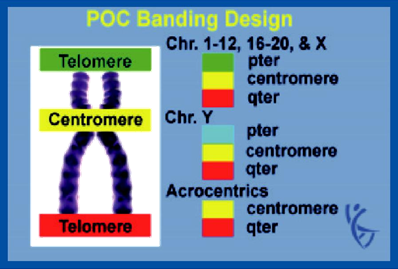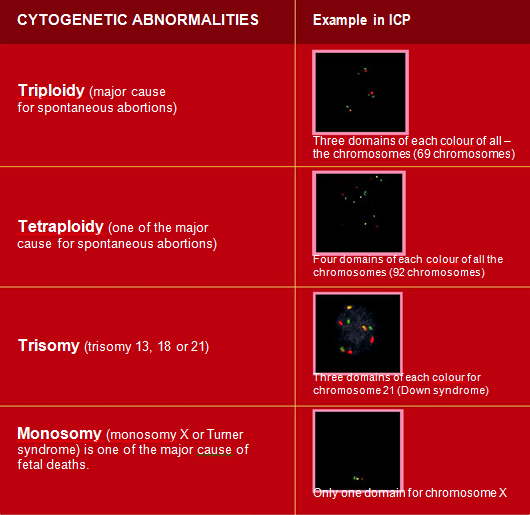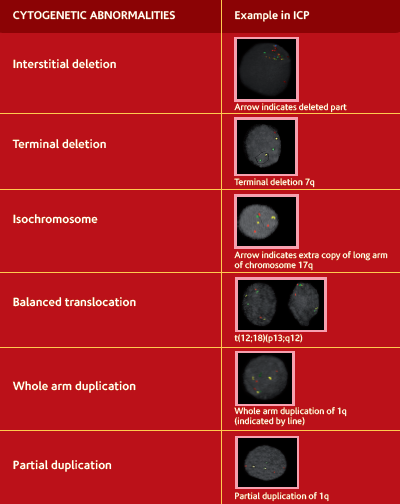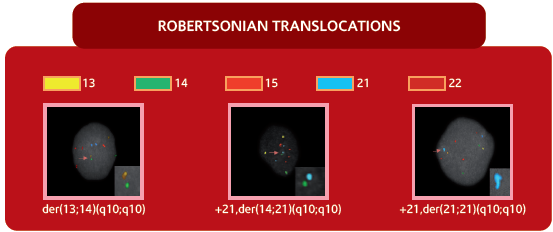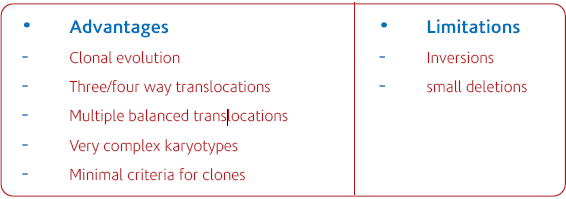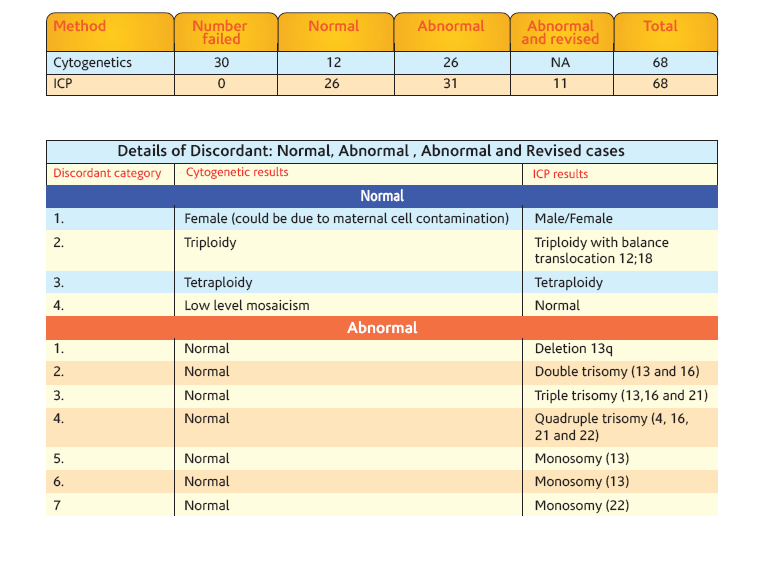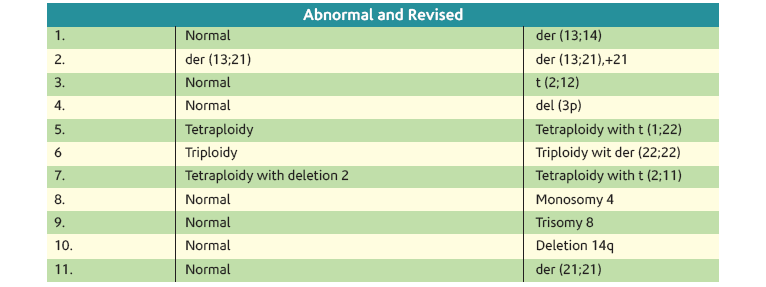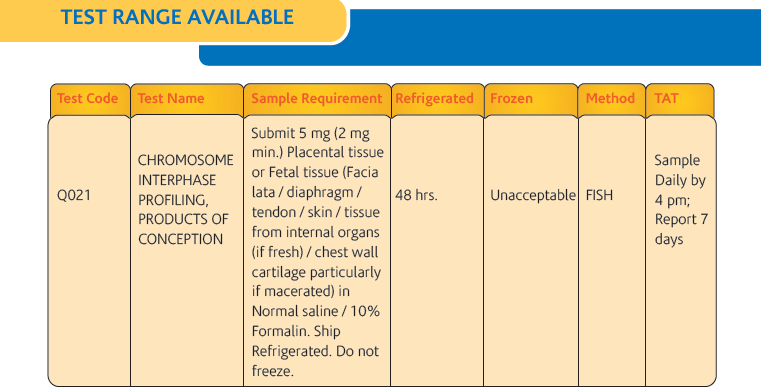Chromosome Interphase Profiling, Products Of Conception-A novel and disruptive technology
Chromosome Interphase Profiling, Products Of Conception-A novel and disruptive technology
In the diagnostic Cytogenetics laboratories, it is common to have culture failures (“No Growth”). The extent of the failure depends mostly on the specimen source. In Products Of Conception (POC) material, the failure rates can be as high as 50%. The concept of Chromosome Interphase Profiling is very simple. Individual chromosomes are studied in their uncondensed state in an interphase nucleus using a panel of FISH probes that target DNA sequences in an equidistant fashion along the entire length of the chromosome. ICP overcomes the major drawbacks associated with the classical approach of studying individual chromosomes by targeting the chromosome in an interphase nucleus rather than the standard metaphase.
- Since ICP is failure-proof and can detect both numerical and structural aberrations including Robertsonian translocations, it should be the first choice of method in the investigation of POC samples.
- Individual chromosomes are studied in their uncondensed state in an interphase nucleus using a panel of FISH probes that target DNA sequences in an equidistant fashion along the entire length of the Chromosome using only three fluorophores for each chromosome arm.
- The resolution obtained with the ICP approach is approximately 600 bands, sufficient to detect numerical changes and all clinically relevant structural abnormalities from POC and Oncology samples.
- For the workup of hematologic malignancies with failed cytogenetics and with “normal” results in plasma cell myeloma cases, ICP should be considered as a REFLEX test since standard FISH panels do not detect all clinically relevant abnormalities.
- Fast TAT: Result will be reported within 7 days of reviving sample in laboratory.
- Very sensitive: Can detect almost all the structural and numerical abnormalities which cause missed abortions and recurrent abortions such as balance translocations which were only detected by Conventional Karyotyping using another sensitive technique of Array-CGH.
- Failure proof: ICP is 100% failure proof. Therefore, no cases will be missed.
- Cost-Effective: Multiple reflex testing can be avoided as it is a one-stop shop for all POC
- Can detect low-level mosaicism
- Three-way/Four-way translocations
- Multiple balanced translocations
- Very complex karyotypes
- Minimal criteria for clone
ICP is used on POC samples to determine the individual chromosome profile in non-dividing cells by using fluorescent DNA probes which are placed in an equidistant fashion along the entire length of the chromosome. By combining the individual results, complete genome information as Karyotype can be obtained. As compared with the Conventional Karyotype method, ICP is failure proof, faster and a very sensitive technique.





